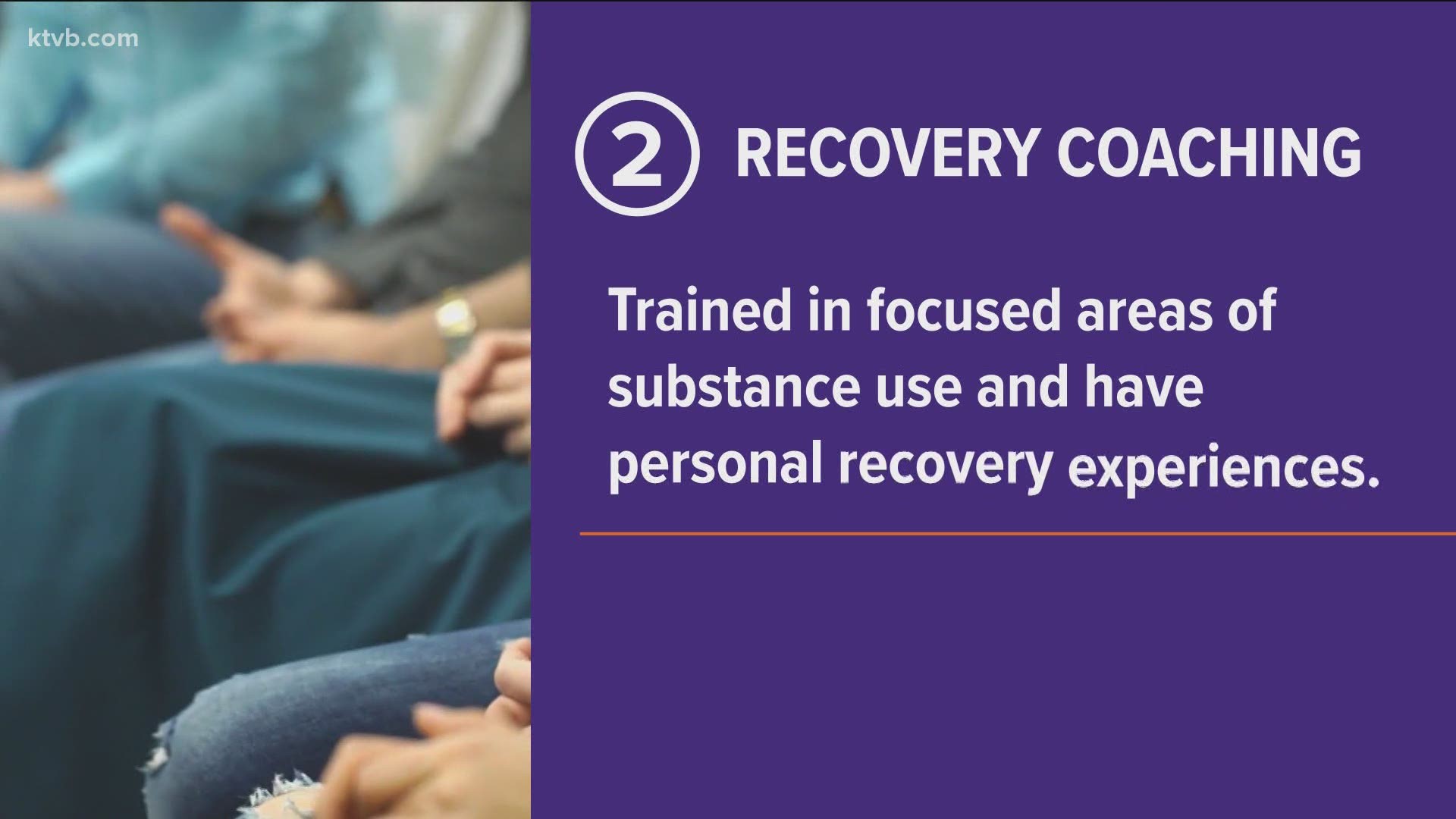BOISE, Idaho — September is National Recovery Month, which is all about increasing awareness of substance use disorders, and crushing the stigma behind asking for help.
One less daunting way of getting help with substance use is through peer support services.
“Peer support services are a different type of support service that helps individuals connect or engage in activities to adjust their mental health or substance use needs,” said Darren Bushee, a field care coordinator at Optum Idaho. “Individuals who provide peer services have a lived-experience so they can connect on an individual level and assist the person and that person’s therapist in developing recovery-oriented goals.”
Bushee said there are four types of peer services offered in Idaho, including peer support, recovery coaching, youth support, and family support.
Peer support is for people over the age of 18.
“Individuals who provide peer support services for adults are certified and trained, help with people create goals for their own individual recovery, and help you connect with other people in the recovery community,” Bushee said. “Then you have recovery coaching, which is another peer service available to people over age 18 as well. Recovery coaches are trained in focused areas of substance use, and again can assist people on a peer-to-peer level because they have lived through their own experience.”
Youth support is for people under the age of 18, and peers have recovered from their own personal childhood experiences.
“Finally you have family support, which is another peer service that is provided to families who have children experiencing mental health or substance abuse issues,” he said.
Bushee added that peer services are very effective.
“Research shows that peer support services provide a level of support that help people feel empowered, creates healthy social interactions, reduces self-stigma, reduces hospitalizations and increases quality of life,” he said. “You have someone who is mentoring, who is actually looking at this individual who is just now approaching their recovery. It just becomes a way to facilitate care for that individual where they are at, and can be consulted and guided through the process of therapeutics and will know what’s to be expected going forward.”
If you or a loved one needs help or guidance regarding substance use, call Optum’s 24/7 helpline, 855-780-5955 or view recovery month resources here.
If you are experiencing thoughts of suicide or just need someone to talk to, call 800-273-8255.
Watch more 'Hello Idaho':
Watch our latest conversations about mental health in our YouTube playlist:

